The greatest stories ever told (part 1)
Or: Everything I needed to know I learned from video games
by: Mike Amari
Whenever there is a new medium of communication, that medium usually gives rise to new ways for us to entertain ourselves. Guttenberg pressed a Bible as his first product form the printing press, a wonderful invention that would eventually give rise to such timeless cultural pieces as Playboy and Swank. Bell and his telephone allowed people to communicate over vast distances in seconds, which now allows you to pay 9.95 a minute to talk to hot singles in your area. Don’t even get me started where the computer has led us.
My point being, every new technological advance is, at first, practical in some way. It is our human nature to then use these tools to our own fantastical delight. With that freedom and new technology smell come some major pitfalls though, usually in the form of the old guard not understanding and even fearing the advances before them.
People once thought that a camera could steal your soul and that reading the bible made you a heretic. We were once told that comic books caused juvenile delinquency,
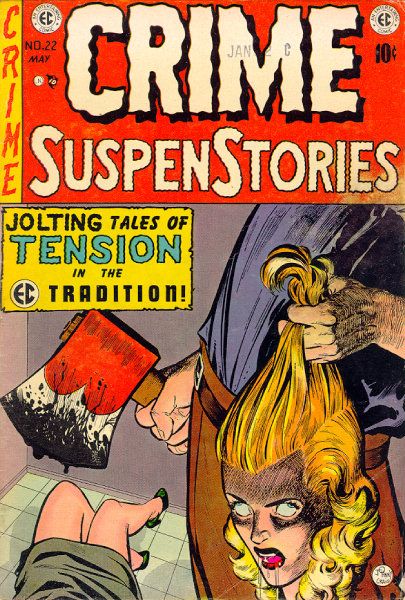 going so far as to put a publisher out of business through government intervention.
going so far as to put a publisher out of business through government intervention.Here we stand at that crossroads again, the comic replaced by the video game but the message is no different and no less dangerous.
While politicians beat their pulpit till their hands are bloody stumps there are those of us that understand that games, like any other medium before it, is just another excuse to tell a story. That’s all it ever comes down to, really, the desire to tell a story and to hear (read, watch, play) a good story.
And while there are some of those out there that just dismiss video games as a waste of time and energy, there are those of us who think differently and our numbers are growing.
About a year ago Roger Ebert, pre-eminent movie critic, made some rather disappointing remarks about games, stating that they “…represent a loss of those precious hours we have available to make ourselves more cultured, civilized and empathetic.” This is disappointing partially because I do usually respect Mr. Eberts opinion but mainly because he has the ear of most of those out there that might be unfamiliar with the medium and to patently dismiss the form due to the technical limitations does this burgeoning art form a grave disservice.
What I think he and most others who dismiss games are missing here is that video games are still a very, very young form of expression. It can be argued that the form started in the early fifties, but Video games as we know them really started with Ralph Baer and his Odyssey platform in 1967. That is thirty-nine years, a rather short amount of time if you compare, what is considered the first game, “Spacewar!” to “Halo.”
In thirty-nine years we have gone from black and white vector graphics on a super computer to variable artificial intelligence routines on home pc’s. We here at Gamefreak (and by “we” I mean “I”) decided to take this time and space to outline the ten best game stories ever told.
This list is by no means comprehensive, nor is it in value order, since artistic merit is a call of the individual. I have lumped a series together where necessary, and isolated a particular game in a series where necessary as well.
This list is, of course, limited to those games I have played, so if you disagree with me let me know (please, please, please…even if only to flame me…it’s so empty in here my keyboard is echoing) and we can do some lively debating on the topic.
All right, enough preamble…onto the games!
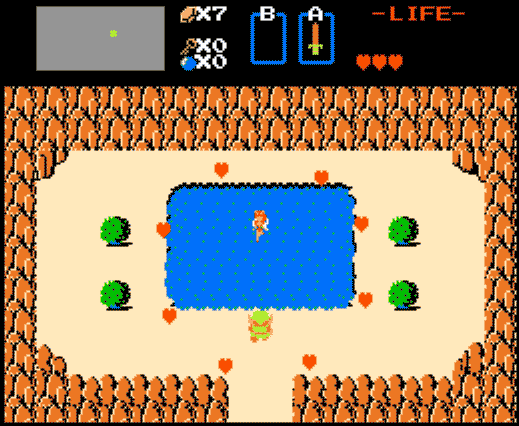
The Legend of Zelda Series
First Appeared: NES 1986
Last Seen: Upcoming “Twilight Princess” on Gamecube and Wii
Ok, so I don’t get points for originality, but it makes sense to open with this classic series.
Considered video game royalty for good reason, “The Legend of Zelda has appeared in multiple forms on every piece of Nintendo hardware since the original NES. A classic fairy tale of an unassuming boy chosen to save a princess, and in the process the world, the first entry is as simplistic as can be in the plot department, but expansive and impressive in its presentation.
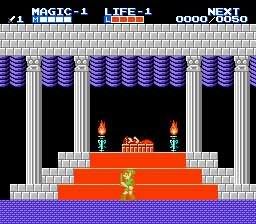 Like most early NES games, little information was given to you, depending on the player to fill in the blanks from the surrounding world.
Like most early NES games, little information was given to you, depending on the player to fill in the blanks from the surrounding world.As the series moved on, plot became more and more important and the series itself has intertwining themes and half connections to each other, leaving a bit of mystery as to how each one connects to the overall series.
Creative High Point: The Moody rain soaked opening to Link to the Past (SNES)
Creative Low Point: One word: Tingle.
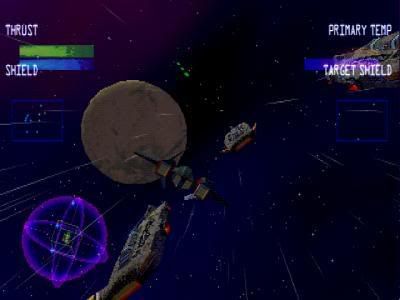
Colony Wars Series
First appeared: PSone (1997)
Last seen: Colony Wars: Red Sun for PSone (2000)
Depending on how you feel about space operas like “Star Wars”, this series may be exactly the cup of tea you’ve been looking for.
Centering around a mistreated group of colonized planets in the future, the first Colony Wars had all the basic conflict, intrigue and action needed for a solid space romp. Nothing too complex, but presented compellingly and with multiple endings to boot.
The series really earns its stripes, however, with the second game.
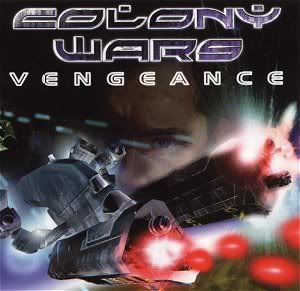 “Colony wars: Vengeance” takes place after the end of the original conflict. With the empire defeated and banished on the other side of a collapsed wormhole, the narrative switches to the defeated. The whole setup really gives you a sinking feeling if you played the first one, as the “good guys” are now viewed as the enemy and their actions shown to have horrible consequences. It’s a nice changeup that makes you appreciate the fact that the terms “good” and “bad” are merely dependent on a viewpoint and not facts.
“Colony wars: Vengeance” takes place after the end of the original conflict. With the empire defeated and banished on the other side of a collapsed wormhole, the narrative switches to the defeated. The whole setup really gives you a sinking feeling if you played the first one, as the “good guys” are now viewed as the enemy and their actions shown to have horrible consequences. It’s a nice changeup that makes you appreciate the fact that the terms “good” and “bad” are merely dependent on a viewpoint and not facts.The story is a branching one, depending on your actions and with multiple endings. The twists and turns are pleasing and the set pieces fairly grand (the dogfights are an especially nice touch, coming across as tense and personal.)
I can’t really comment on the third one, as I haven’t played it. All I know is that you are a mercenary during the time of the “Vengeance” campaign, a nice choice I think since it completely does away with the moral standpoint right away and just focuses on an individual in the conflict.
Creative High Point: The opening of Vengeance, which, if you played the first game, makes you feel like a total imperialist douche
Creative Low Point: Presence of a third alien race that never fleshes out.
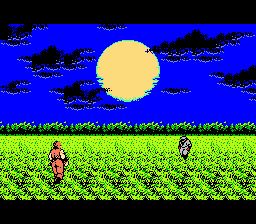
Ninja Gaiden (NES 1989 Version)
One of the few original NES games to feature not only an in depth story line but to also include cinematics. For this alone the NES Ninja Gaiden gets major points. While not the most complex story, it was stylishly told and wouldn’t head into complete absurdity until the second and third installments.
Creative High Point: Inclusion of cinematics
Creative Low Point: Laughably translated dialog
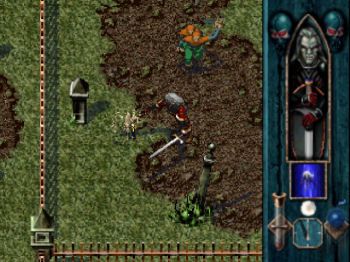
Legacy Of Kain Series
First Appeared: PSone 1996
Last Seen: Legacy of Kain Defiance (multi-platform 2003)
This one started out as a Diablo-esque dungeon crawl but with HEAVY emphasis on story and not so much on loot collecting. Blood Omen, the first in the series, initially seems to be nothing more than a grim vengeance tale as our fine hero is murdered in the first 5 minutes, only to be brought back as a vampire. Things take a decidedly crappy turn for Kain as the events set forth quickly spiral out of control. Deception, murder, political maneuvering and ancient forces crowd around our hapless rouge as he tries to understand his part in a mess that threatens to destroy everything.
Complex unto itself and taking all the great drama of a Victorian vampire novel (without that Anne Rice crap), the first Kain game was but an inkling of what was to come.
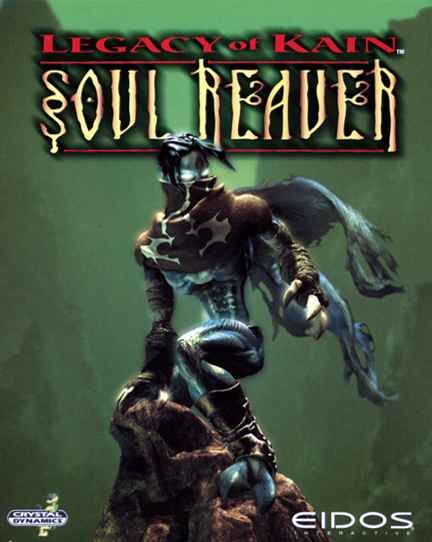 By switching roles (Kain is now the wrongdoer with someone seeking vengeance upon him) and questioning the line between heroism and villainy, the series took a certain glee in leading the player down one moral road only to throw up a roadblock by showing a bit more of the big picture.
By switching roles (Kain is now the wrongdoer with someone seeking vengeance upon him) and questioning the line between heroism and villainy, the series took a certain glee in leading the player down one moral road only to throw up a roadblock by showing a bit more of the big picture.The big picture is exactly what makes the story in this series so exceptional, while at the same time almost destroying it under its own weight. The entire series has it’s own internal logic which it sticks too and never seems to forget a story thread or character, even when the player may have. This was one series that was unafraid to make its audience think, and, despite the risk involved, courageous enough to take the time needed to tell an epic story.
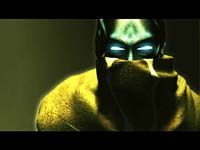 Top it off with yet to be matched voice work (even in the PSone days) which included Rene Auberjonois and the late, great Tony Jay and you have one of the most consistently compelling narratives in videogames, or any medium for that matter. To this day I get chills when any of my buddies, out of nowhere, starts yelling “Maaaaaallllliiiik!”
Top it off with yet to be matched voice work (even in the PSone days) which included Rene Auberjonois and the late, great Tony Jay and you have one of the most consistently compelling narratives in videogames, or any medium for that matter. To this day I get chills when any of my buddies, out of nowhere, starts yelling “Maaaaaallllliiiik!”Creative High Point: Having the rug pulled out from under Raziel after we played with righteous hellfire for two games. Nothing like a nice fat ‘I told ya so’ when you’re so damn sure of something.
Creative Low Point: Blood Omen 2. It was supposed to fill in the years between the first Omen and Soul Reaver but really was just forgettable.

Silent Hill 2 (PS2 & XBOX 2001)
I’ll admit, I love this series as a whole, but this one deserves to be spotlighted on it’s own. Instead of following from the first surprise hit, SH2 does what good horror is supposed to do: draw you in despite yourself, make you uncomfortable and make you think.
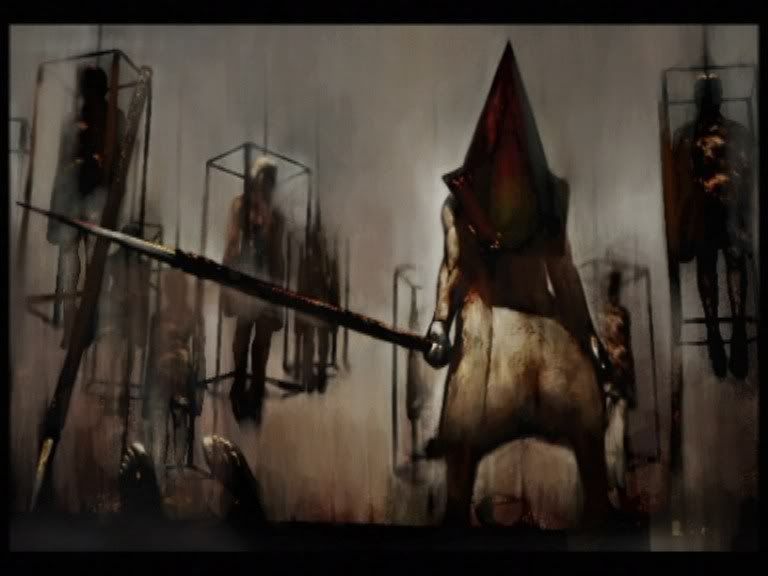 This game had me constantly on edge, but more impressive is the fact that I wanted to push through mainly to see where this would all be answered, what would happen to my group of highly flawed characters and to see just what the hell pyramid head had to do with the whole thing. I was always afraid what would be around the next corner, beyond the next door and for that I love it.
This game had me constantly on edge, but more impressive is the fact that I wanted to push through mainly to see where this would all be answered, what would happen to my group of highly flawed characters and to see just what the hell pyramid head had to do with the whole thing. I was always afraid what would be around the next corner, beyond the next door and for that I love it.A wonderful allegory for the guilt we all hide from, SH2 really is the complete cerebrally creepy package that wraps up, if not nicely per se, then at least in a fulfilling manner.
Special note goes to the music, which is always a high point in the series. If you haven’t heard any of the stuff, track down the highly popular soundtracks and order now!
Creative high point: The climax where James realises what he's done, and we learn the nature of pyramid head
Creative low point: Repetative bactracking, while increasing tension, drew the player from the game
Coming Soon....part 2!!!!
